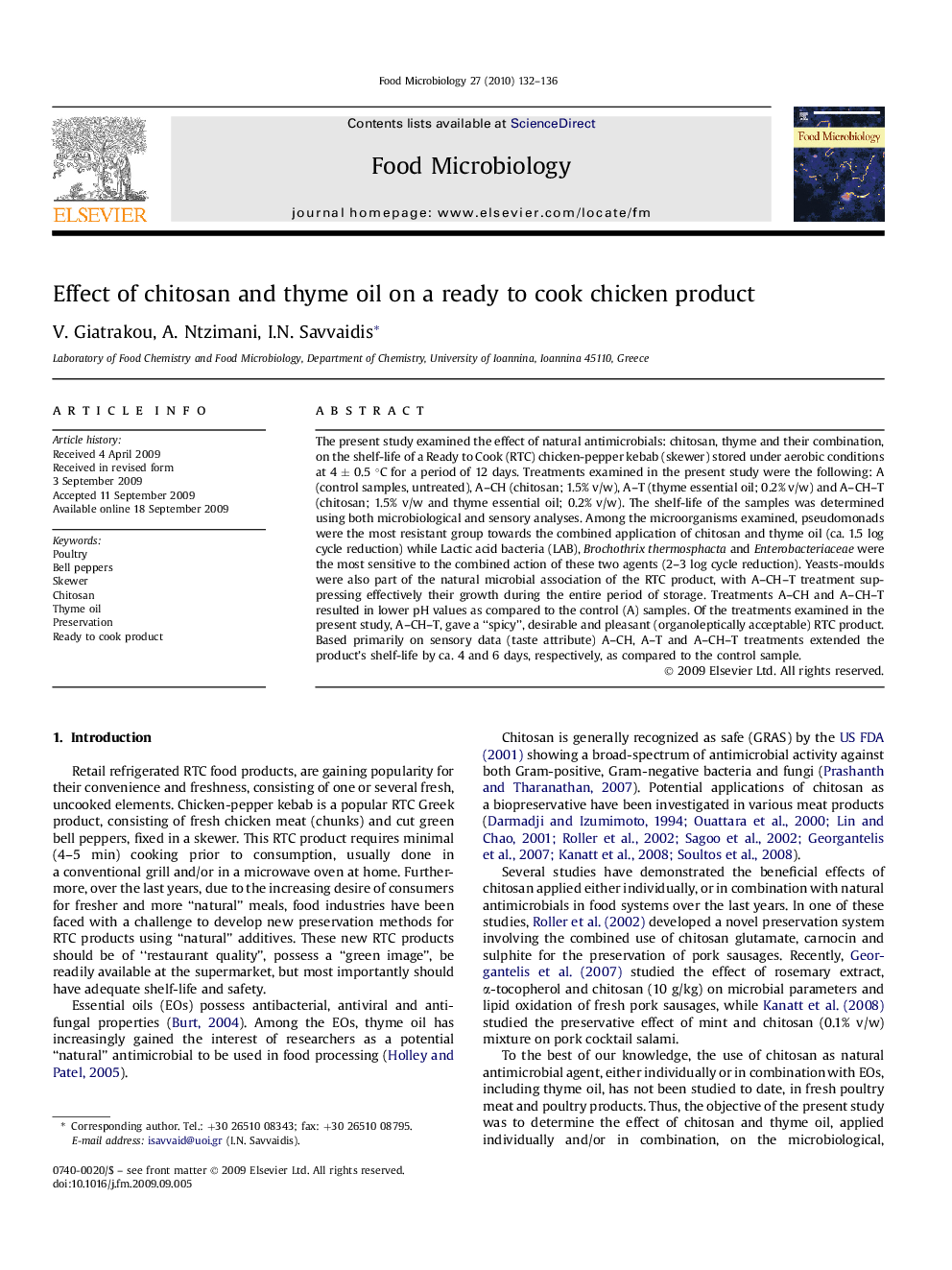| Article ID | Journal | Published Year | Pages | File Type |
|---|---|---|---|---|
| 4363455 | Food Microbiology | 2010 | 5 Pages |
The present study examined the effect of natural antimicrobials: chitosan, thyme and their combination, on the shelf-life of a Ready to Cook (RTC) chicken-pepper kebab (skewer) stored under aerobic conditions at 4 ± 0.5 °C for a period of 12 days. Treatments examined in the present study were the following: A (control samples, untreated), A–CH (chitosan; 1.5% v/w), A–T (thyme essential oil; 0.2% v/w) and A–CH–T (chitosan; 1.5% v/w and thyme essential oil; 0.2% v/w). The shelf-life of the samples was determined using both microbiological and sensory analyses. Among the microorganisms examined, pseudomonads were the most resistant group towards the combined application of chitosan and thyme oil (ca. 1.5 log cycle reduction) while Lactic acid bacteria (LAB), Brochothrix thermosphacta and Enterobacteriaceae were the most sensitive to the combined action of these two agents (2–3 log cycle reduction). Yeasts-moulds were also part of the natural microbial association of the RTC product, with A–CH–T treatment suppressing effectively their growth during the entire period of storage. Treatments A–CH and A–CH–T resulted in lower pH values as compared to the control (A) samples. Of the treatments examined in the present study, A–CH–T, gave a “spicy”, desirable and pleasant (organoleptically acceptable) RTC product. Based primarily on sensory data (taste attribute) A–CH, A–T and A–CH–T treatments extended the product's shelf-life by ca. 4 and 6 days, respectively, as compared to the control sample.
